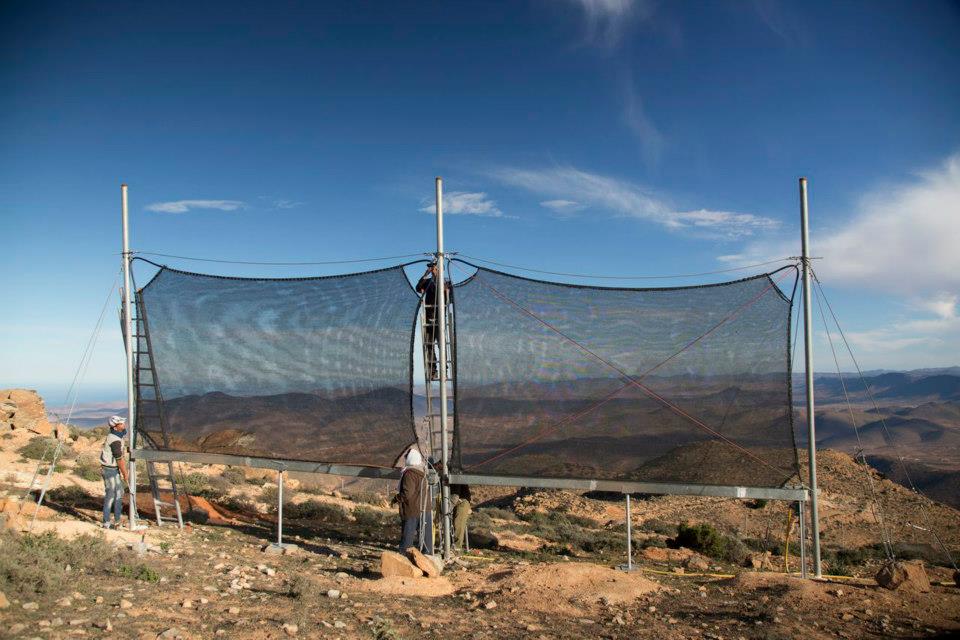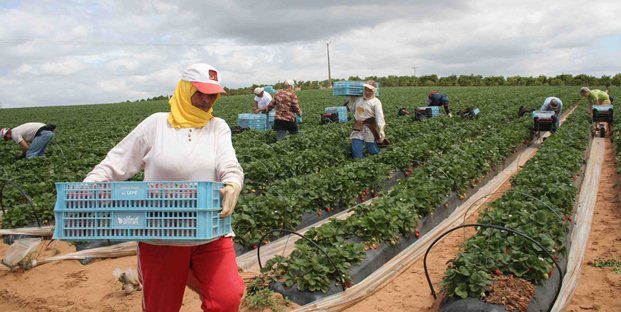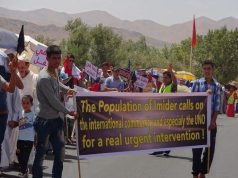
Bonn, Germany – The world’s largest operational fog-water harvesting system located in the vicinity of Sidi Ifni (check video underneath) was announced today as one of 13 winners of a United Nations climate change award.
Dar Si Hmad, a women-led NGO in Morocco, designed and installed the fog-water harvesting system in the villages of Ait Baamrane in Southwest Morocco. It is an innovative solution to persistent water stress where fog is abundant, a technique inspired from ancient water practices. The Dar Si Hmad project provides drinkable water to more than 400 people in five villages, most of them women and children. Prior to the fog-collection project, most women spent more than three hours a day retrieving water from distant, depleted wells, which seriously constrained their lives.
Dr. Jamila Bargach, Executive Director of Dar Si Hmad, said that “the fog project should not simply be reduced to the story of technical prowess and success: there are more complex and intertwined stories to tell. One narrative is that of curiosity and aspiration; one of motivation and quest for dignity; and one of rigor and determination. This fog catching project has already irrevocably altered the women’s daily patterns and the balance of powers within Berber households. Prior to the fog project, Berber women bore the laborious task of carrying water from distant wells – a burden that greatly limited opportunities for young women.”
The project has been awarded the prize under the Momentum for Change Women for Results focus area for its women-led climate change adaptation initiative, providing an environmentally friendly water source to combat the effects of desertification. Fog harvesting uses specialized mesh, hung between two poles, to trap the water droplets in fog. The wind pushes fog through the mesh, where droplets are trapped, condense, fall, and amass in a container placed at the base of the unit. Drop-by-drop, they constitute a substantial amount of water.
“It is impressive to see so many original and creative ways to tackle climate change,” said UNFCCC Spokesperson Nick Nuttall. “The ‘Women-Led Fog Harvesting for a Resilient, Sustainable Ecosystem’ project is proof that climate action is building in countries, communities, companies and cities everywhere. Not only do this year’s winning activities address climate change, but they also help drive forward progress on many other Sustainable Development Goals, such as innovation, gender equality and economic opportunity – it’s great to see a winner from Morocco, this year’s host of the United Nations Climate Change Conference.”
The project includes: 600 m2 of nets to harvest fresh water from fog; 7 reservoirs of 539 m3 storage capacity; 6 solar panels; and 10,000+ meters of piping. Pre-paid water meters connected to 52 homes in 5 villages, serving more than 400 rural Berber residents, most of them women. Starting in January 2017, the project will be upgraded to CloudFisher, next generation fog-collection technology, and will connect 8 more villages to the grid.
Together with the other winning projects, it will also be showcased at a series of special events during the UN Climate Change Conference in Marrakech, Morocco (7-18 November 2016).





